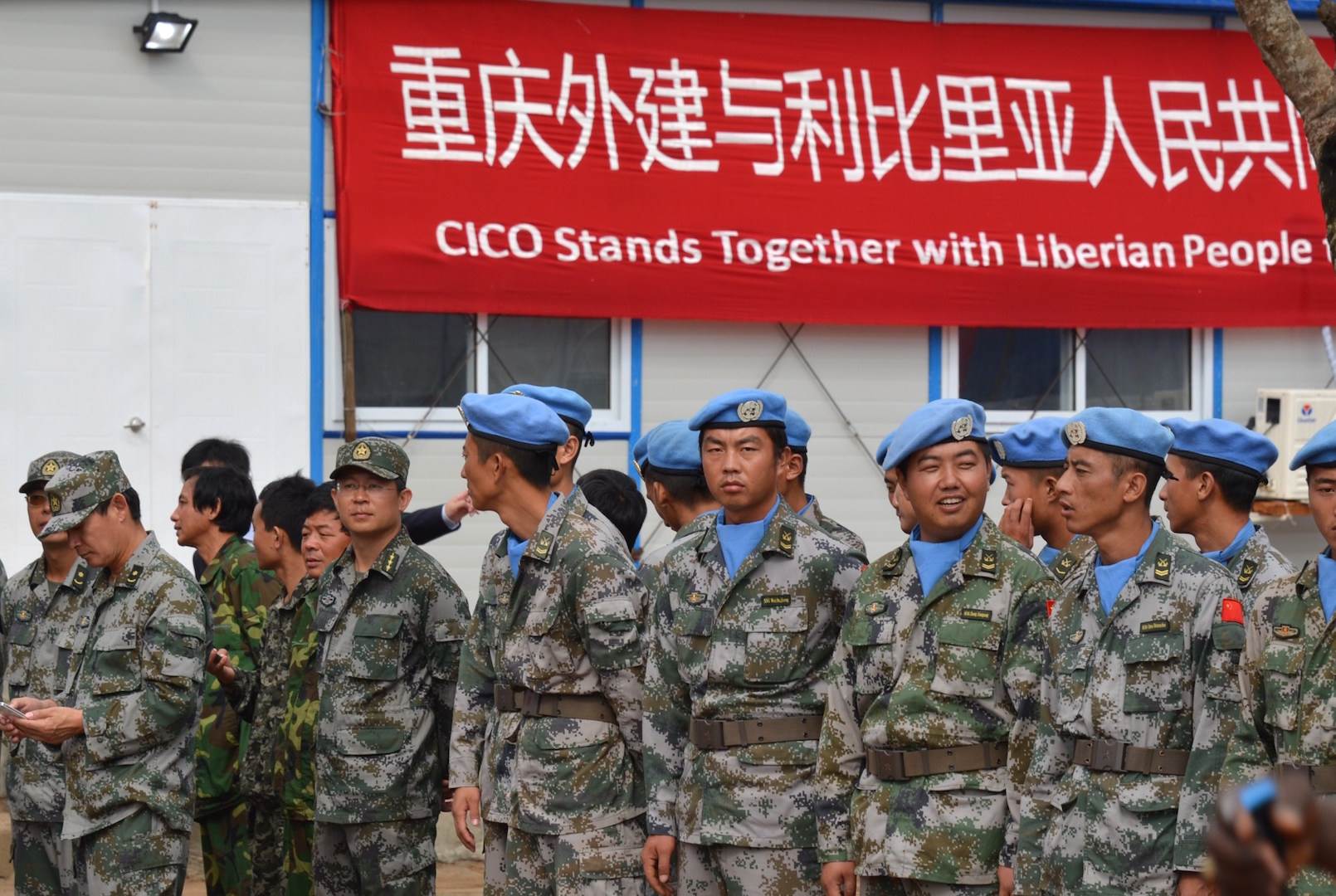Why China is interested in peace in the Horn of Africa: SCMP
China is taking measures opposed to those of the United States in its dealing with the Horn of Africa, and it seems like it is more interested in peace since it serves its economic interests.
-

Members of a 160-strong Chinese army medical team attend the opening of a $41 million Chinese-funded Ebola treatment hospital, Monrovia, Liberia, November 25, 2014 (AFP)
Some regional observers see China's pledge to appoint an envoy on peace in the Horn of Africa as Beijing moving from its traditional position of not intervening in the affairs of other countries. They also perceive this as a sign of China growing out of its shell and displaying more confidence in the international arena.
China called for regional peace in the Horn through its foreign minister Wang Yi during his visit to Kenya last week. The diplomat also took the chance to praise the region for its "unique strategic position and great development potential."
The region has been plagued and ravaged by civil wars and coup d'etats that had effects on investment, in which Chinese companies have a hand.
Chinese companies have made huge investments in the region and said investments included infrastructures, such as ports and railways, and some attribute China's intervention to these investments, according to an article on South China Morning Post (SCMP).
China is presenting itself as an alternative mediator to the Ethiopian conflict
China appointing an envoy shows that Beijing has realized the region's geostrategic value, and it is ready to "officially and openly" put aside its "principle of non-interference" to serve its interests, said Seifudein Adam, a global studies professor at one of Japan's most prestigious universities, Doshisha University.
The professor sees that China is presenting itself as an alternative mediator to the Ethiopian conflict that the United States has failed to mediate so far. He also highlighted that Beijing is growing more confident of being a rising global power that can provide mediation for conflicts in foreign countries in addition to other "global public goods."
China's special envoy will allow the Asian giant to "better support and coordinate with African multilateral peace and security efforts," said an expert and researcher at the National Institute for the Humanities and Social Sciences at the University of Pretoria in South Africa.
He also saw that the envoy's appointment would help make China more informed on certain issues, such as the crisis in Somalia and the civil war in Ethiopia.
China's vast investments in the region
China's vast investments in the region include a $4.5 billion rail link to Djibouti in Ethiopia, as the former continues a key maritime outlet for Ethiopia's imports and exports.
China is also making progress in Eritrea, which joined the Belt and Road Initiative a few months ago, meaning it could see Chinese money flow to develop its infrastructure soon.
The Asian giant is taking an approach parallel to that of the US, which sanctioned leaders in Ethiopia and Eritrea, both of which have been rebels in Tigray, Ethiopia. Instead of punishment and unilateral sanctions, China condemned the punitive measures.
During his visit to Eritrea, Wang condemned the US sanctions and praised the leaders of the two countries, who he said appeared to be asserting their independence from the United States.
Yunnan: China interested in peace and security in the region
China's economic interests in the region and the latter's significance in the Belt and Road Initiative make China interested in peace and security in the region, said Yunnan Chen, a senior research officer at the Overseas Development Insitute think tank.
She reasoned that conflicts put at risk the lives of Chinese citizens and workers on the ground, not to mention the sustainability of the major infrastructure projects considered part of the BRI.
Many other experts saw that China's interest in the region was rational and peace-based, as Beijing wants regional peace for the best interest of its investments and its Belt and Road Initiative.
"One can see a similar dynamic here of China both safeguarding its investment in the region and contributing to regional security," said W. Gyude Moore, a former Liberian public works minister and a senior policy expert in the Centre for Global Development.

 4 Min Read
4 Min Read








